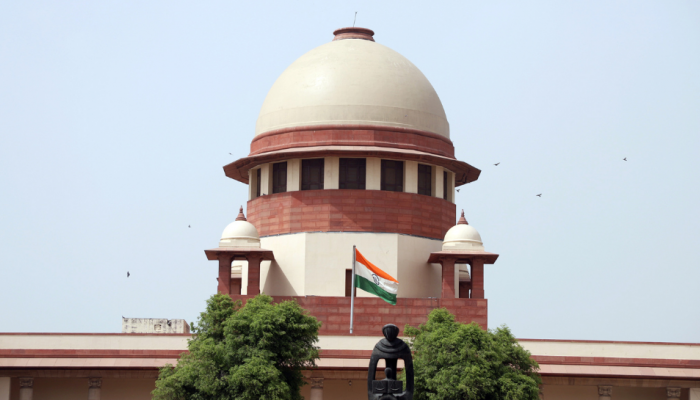Secret Recording Of Spouses' Conversation Admissible In Matrimonial Cases? SC Ruling Says...
A bench of Justice B V Nagarathna and Satish Chandra Sharma set aside the verdict of the Punjab and Haryana HC that had ruled that the 'secret conversations' between spouses are protected under Section 122 of the Evidence Act. Section 122 of the Evidence Act deals with communications during marriage and also makes ground for a privilege against disclosure.
Trending Photos
) Photo Credit: ANI
Photo Credit: ANIThe Supreme Court ruled on Monday that the conversations of spouses that were secretly recorded are admissible as evidence in matrimonial cases. According to reports, the top court set aside the Punjab and Haryana High Court's judgment that stated that recording a wife's telephonic conversation secretly is a "clear breach" of her fundamental right of privacy and hence is inadmissible in evidence before a Family Court.
A bench of Justice B V Nagarathna and Satish Chandra Sharma set aside the verdict of the Punjab and Haryana HC that had ruled that the 'secret conversations' between spouses are protected under Section 122 of the Evidence Act, as per Live Law.
The ruling would change, moving forward, the proceedings of divorce cases, as the realms of privacy within marriage would be affected. The ruling by the apex court came after a Special Leave Petition (SLP) reportedly challenged the decision of the High Court's decision.
It asked the family court to proceed with the case after taking judicial note of the recorded conversations.
What Is Section 122 Of Evidence Act?
Section 122 of the Evidence Act deals with communications during marriage and also makes ground for a privilege against disclosure.
It says that a person who is or has been married is not "compelled to disclose" any communication made to them by their spouse in the duration of their marriage.
According to the Live Law report, the Supreme Court remarked that an exception under Section 122 has to be factored in for a fair trial, which is also a part of Article 21 of the Constitution.
Background Of Case
The case comes from a Family Court's decision in Bathinda that allowed the husband to rely on recordings of phone calls with his wife to support his claims of cruelty. The wife challenged this in the HC and stated that she was recorded without her consent and thus violated her fundamental right to privacy.
The High Court reportedly accepted the wife’s plea and ruled that the evidence was inadmissible.
Now, the Supreme Court has ruled that there was no breach of privacy in the present case and further clarified that the section does not deal with the right to privacy under Article 21 of the Constitution.
The details of the judgment are still awaited.
Stay informed on all the latest news, real-time breaking news updates, and follow all the important headlines in india news andworld News on Zee News.
Live Tv



)
)
)
)
)
)
)
)
)
)
)
)
)
)
